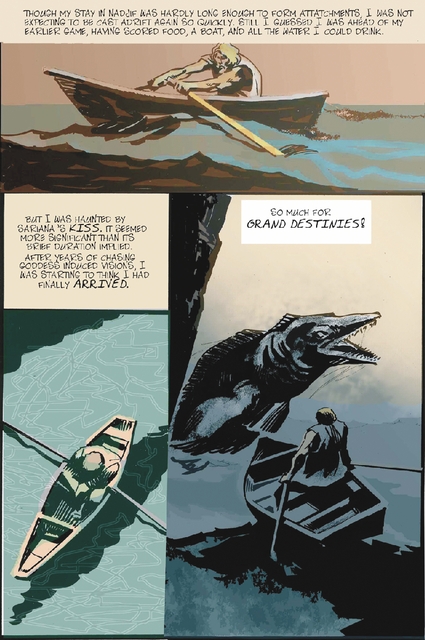Creating Comics
Up-And-Coming Arts Organization Hopes To Get The Word (And The Picture) Out



A page from Jamie Chase









